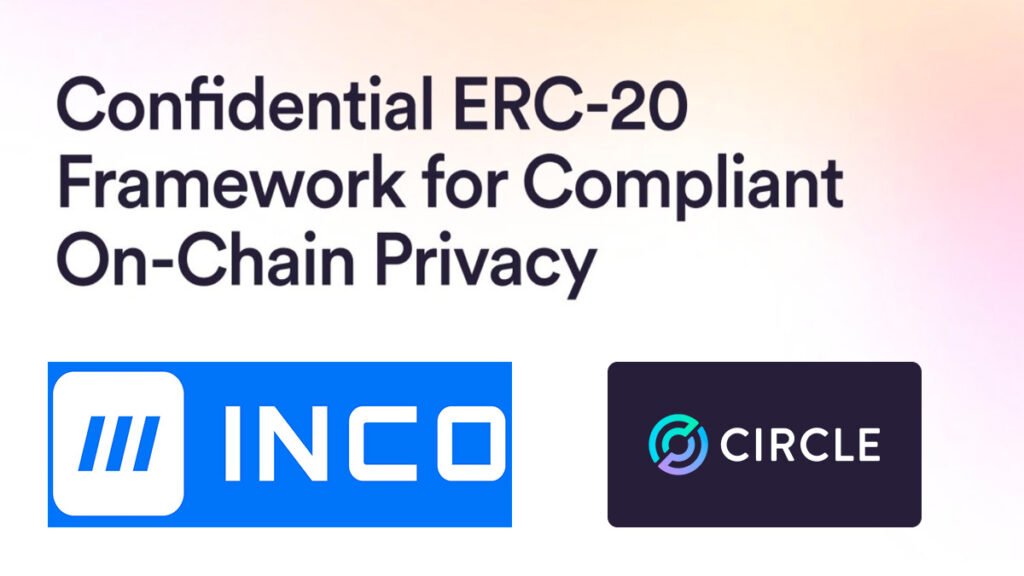TL;DR
- Circle and Inco Network introduce the Confidential ERC-20 Framework to enhance blockchain privacy while maintaining regulatory compliance.
- The framework uses Fully Homomorphic Encryption (FHE) to keep account balances and transaction amounts concealed from public view.
- Key features include delegated viewing for regulators and auditors and programmable transfer rules for compliance measures like KYC.
Circle, the company behind the USDC stablecoin, has announced a groundbreaking development in blockchain privacy. In collaboration with Inco Network, Circle has introduced the Confidential ERC-20 Framework, a new standard designed to enhance users’ privacy while maintaining regulatory compliance.
Introducing the Confidential ERC-20 Framework @IncoNetwork and Circle Research release a new whitepaper and open-source repo on transforming ERC-20 tokens into confidential wrapped versions that preserve user privacy using fully homomorphic encryption (FHE) while maintaining… pic.twitter.com/Vvrx7KfX5T
— Circle Developer (@BuildOnCircle) October 28, 2024
Enhancing Blockchain Privacy
The Confidential ERC-20 Framework aims to provide a compliant privacy solution for public blockchains by converting standard ERC-20 tokens into privacy-protected versions.
This innovative framework leverages Fully Homomorphic Encryption (FHE) technology, which allows data to be processed without decryption, ensuring that account balances and transaction amounts remain concealed from public view.
This approach addresses the growing demand for privacy in blockchain transactions while adhering to regulatory requirements.
Key Features of the Confidential ERC-20 Framework

The Confidential ERC-20 Framework offers several key features that set it apart from traditional token standards. It supports delegated viewing, allowing users to grant permissions for select entities, such as regulators and auditors, to view account and transfer balances.
This ensures that necessary oversight is maintained without compromising user privacy. Additionally, the framework includes programmable transfer rules, enabling asset issuers to enforce Know Your Customer (KYC) and other compliance measures.
Circle’s CEO, Jeremy Allaire, emphasized balancing privacy with regulatory compliance. He noted that the Confidential ERC-20 Framework provides a solution that meets the needs of regulated financial institutions while protecting user privacy.
This framework is particularly valuable for applications such as employee payroll, supply chain vendor payments, and peer-to-peer transactions.
Market Reactions and Future Prospects
The introduction of the Confidential ERC-20 Framework has been met with praise from developers and investors within the web3 ecosystem. However, some privacy advocates have expressed concerns about the framework’s ability to provide true privacy.
Critics argue that the framework’s design allows for backdoor access by authorities, potentially undermining its privacy claims. Despite these concerns, the Confidential ERC-20 Framework represents a significant step forward in the evolution of blockchain technology.
By offering a privacy-enhancing solution that maintains regulatory compliance, Circle and Inco Network are paving the way for broader adoption of decentralized finance (DeFi) applications.
As the blockchain industry continues to evolve, the Confidential ERC-20 Framework is poised to play a crucial role in shaping the future of privacy and compliance in the digital asset space.
This development underscores the importance of innovation in addressing the complex challenges of privacy and regulation in the blockchain ecosystem.










